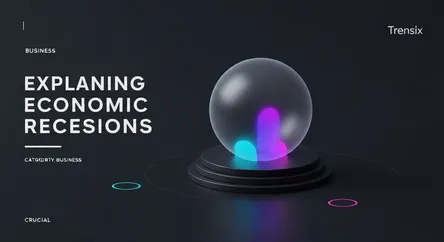Business
Explaining Economic Recessions

Understand what a recession is, why it occurs, and how this significant decline in economic activity can impact your finances and the job market.
What is it?
A recession is a significant, widespread, and prolonged downturn in economic activity. While commonly defined as two consecutive quarters of declining real Gross Domestic Product (GDP), a recession's official declaration considers broader data. Key indicators include falling GDP, which measures the total value of goods and services produced, alongside rising unemployment rates, declining retail sales, and a contraction in manufacturing and industrial production. Essentially, it's a period when the economy stops growing and starts shrinking, affecting businesses, investments, and employment across the country.
Why is it trending?
Talk of a recession often trends when economic warning signs appear. High inflation, which erodes purchasing power, is a major trigger. To combat this, central banks raise interest rates, making borrowing more expensive for both consumers and businesses. This can slow down economic growth and increase recession risk. Geopolitical instability, supply chain disruptions, and volatile stock markets also contribute to economic uncertainty, leading economists and the public to speculate about a potential downturn as they weigh these overlapping pressures on the global economy.
How does it affect people?
Recessions have a direct impact on personal finances and daily life. The most significant effect is often on employment, as companies may implement hiring freezes, layoffs, or reduce work hours to cut costs. This leads to higher unemployment rates and financial insecurity for many households. For those with investments, stock portfolios and retirement accounts can see significant losses. Access to credit may also tighten, making it harder to get loans for homes or cars. Overall, consumer confidence drops, leading people to spend less, which further slows the economy.